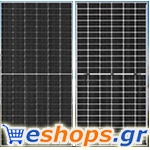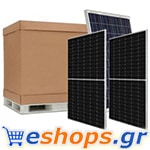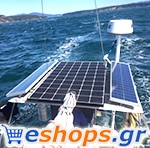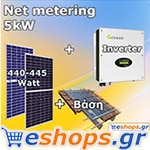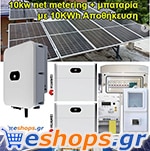Solar Energy – Power of the Sun
Solar Energy In an age where sustainable energy sources are imperative to combat climate change and ensure a cleaner, greener future, solar energy stands out as a beacon of hope. The sun, a virtually infinite and renewable resource, provides an abundant and environmentally friendly solution to our growing energy needs. This article explores the various aspects of solar energy, from its technology and environmental impact to its potential to revolutionize the global energy landscape.
Solar technology:
Solar energy is harnessed through photovoltaic (PV) cells, which convert sunlight into electricity. These cells are usually made of semiconductor materials, such as silicon, and produce direct current (DC) electricity when exposed to sunlight. Advances in solar technology have led to more efficient and cost-effective solar panels, making them increasingly affordable for individuals, businesses and governments.
The two main types of solar technologies are solar photovoltaic (PV) systems and solar thermal systems. Photovoltaic systems, usually found on rooftops, convert sunlight directly into electricity, while solar thermal systems use sunlight to generate heat for various applications, including electricity generation and water heating.
Environmental impact:
One of the most exciting aspects of solar energy is its minimal environmental impact compared to conventional fossil fuels. Solar energy produces no greenhouse gas emissions during operation, significantly reducing air pollution and mitigating climate change. Additionally, solar installations require relatively little water for maintenance, addressing water scarcity concerns in many regions.
Life cycle analysis of solar panels examines their environmental impact from manufacture to disposal. While the production of solar panels involves energy and resource consumption, the overall environmental footprint is still significantly lower compared to the long-term pollution caused by traditional energy sources.
Financial advantages:
The rapid growth of the solar industry has led to increased employment opportunities and economic benefits. As the demand for solar installations increases, more skilled workers are needed for construction, installation and maintenance. This not only stimulates economic growth, but also promotes a shift towards a more sustainable labor market.
Government incentives and subsidies further encourage solar adoption. Many countries offer tax credits, subsidies and feed-in tariffs to make solar installations more economically attractive to individuals and businesses, fostering a supportive environment for sustainable energy initiatives.
Challenges and future prospects:
Despite its numerous advantages, solar energy faces challenges such as interruption and energy storage. The sun does not shine 24/24 and energy storage solutions are vital to ensure a stable power supply. Advances in battery technology, such as lithium-ion batteries, address these challenges, making solar power a more reliable and sustainable option.
Looking ahead, ongoing research and development is focused on improving solar cell efficiency, reducing manufacturing costs, and improving energy storage technologies. Innovations such as transparent solar panels and solar paint highlight the possibility of integrating solar technology into various aspects of our daily lives.
Conclusion:
Solar Energy Solar energy has emerged as a key factor in the global transition to sustainable energy sources. With its minimal environmental impact, economic benefits and continuous technological advances, solar energy promises a brighter and cleaner future. As we continue to harness the power of the sun, we are one step closer to a world where renewable energy is the norm, mitigating the effects of climate change and ensuring a sustainable legacy for generations to come.


